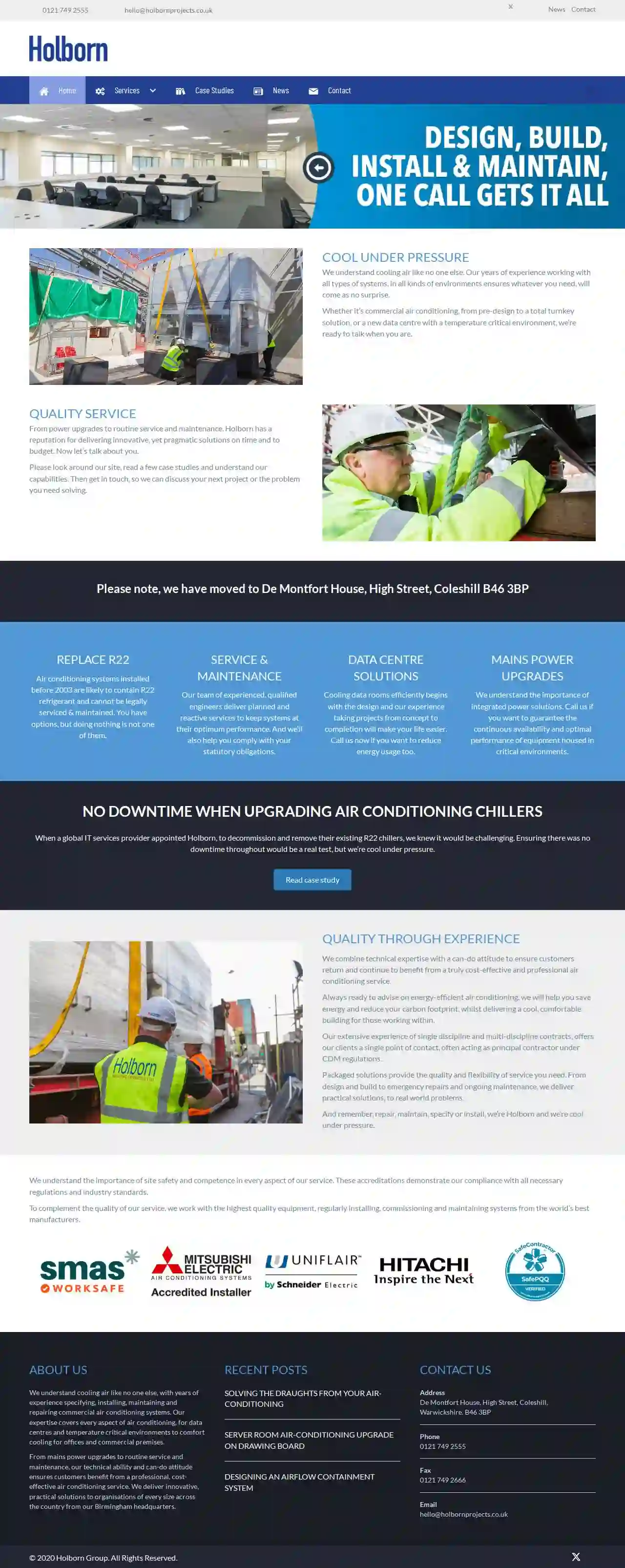Heat Pump Installation Sutton Coldfield
Find top New Heat Pump Installation in Sutton Coldfield
Get multiple New Heat Pump Installation quotes for your project today! Compare profiles, reviews, accreditations, portfolio, etc... and choose the best offer.
- Ev
Evolution Cooling Limited
519 reviewsBirmingham, GB- Services
- Why Us?
Get Quote 
Holborn Group Ltd
52 reviewsDe Montfort House, High Street, B46 3BP, GBWe understand cooling air like no one else. Our years of experience working with all types of systems, in all kinds of environments ensures whatever you need, will come as no surprise. Whether it’s commercial air conditioning, from pre-design to a total turnkey solution, or a new data centre with a temperature critical environment, we’re ready to talk when you are. From power upgrades to routine service and maintenance, Holborn has a reputation for delivering innovative, yet pragmatic solutions on time and to budget. Now let’s talk about you. Please look around our site, read a few case studies and understand our capabilities. Then get in touch, so we can discuss your next project or the problem you need solving.
- Services
- Why Us?
- Gallery
Get Quote- Qu
Quality Team Heating
520 reviewsBirmingham, GB- Services
- Why Us?
Get Quote - Tr
Tri-Stan services ltd Air Conditioning Install,Service And Maintenance
51 reviewsBirmingham, GB- Services
- Why Us?
Get Quote - Bi
Birmingham's Heating & Cooling Ltd
58 reviewsBirmingham, GB- Services
- Why Us?
Get Quote - Wa
Warley Hardware Centre Ltd
4.934 reviewsBirmingham, GB- Services
- Why Us?
Get Quote - Co
Combiserv
52 reviewsBirmingham, GB- Services
- Why Us?
Get Quote - Ea
Easy Air Conditioning
1Birmingham, GB- Services
- Why Us?
Get Quote - Th
Thermaright Hire Solutions
1Birmingham, GB- Services
- Why Us?
Get Quote - Ai
Airtech Controls Ltd
31 reviewsBirmingham, GB- Services
- Why Us?
Get Quote
Over 16,895+ HVAC Contractors on our directory
Our HVAC companies operate in Sutton Coldfield & surrounding areas!
HVACCompaniesHub has curated and vetted Top HVAC Companies in and around Sutton Coldfield. Find a top & trustworthy contractor today.
Frequently Asked Questions about Heat Pump Installation
How do heat pumps work in cold climates?
What is a variable-speed heat pump?
What is the difference between an air source heat pump and a geothermal heat pump?
Air source heat pumps extract heat from the outside air. They are less expensive to install than geothermal heat pumps, but their efficiency decreases in very cold climates.
Geothermal heat pumps use the stable temperature of the earth as their heat exchange medium. They are more expensive to install due to the ground loop requirements, but their efficiency remains consistent even in very cold or hot climates.
What is a geothermal heat pump?
How do heat pumps work in cold climates?
What is a variable-speed heat pump?
What is the difference between an air source heat pump and a geothermal heat pump?
Air source heat pumps extract heat from the outside air. They are less expensive to install than geothermal heat pumps, but their efficiency decreases in very cold climates.
Geothermal heat pumps use the ground as their heat exchange medium. They are more expensive to install due to the underground piping requirements, but their performance is more reliable even in extreme weather.